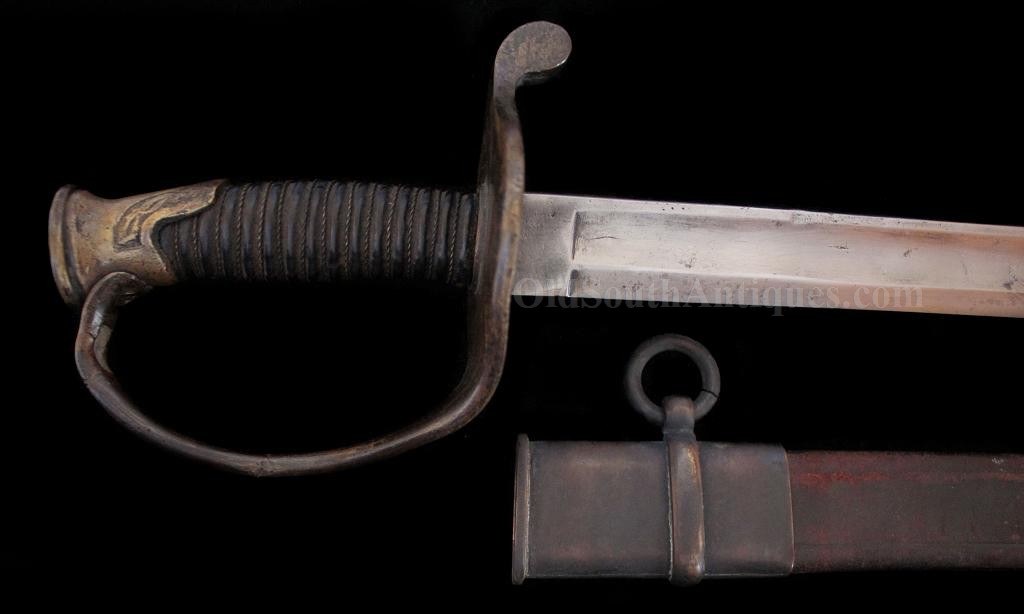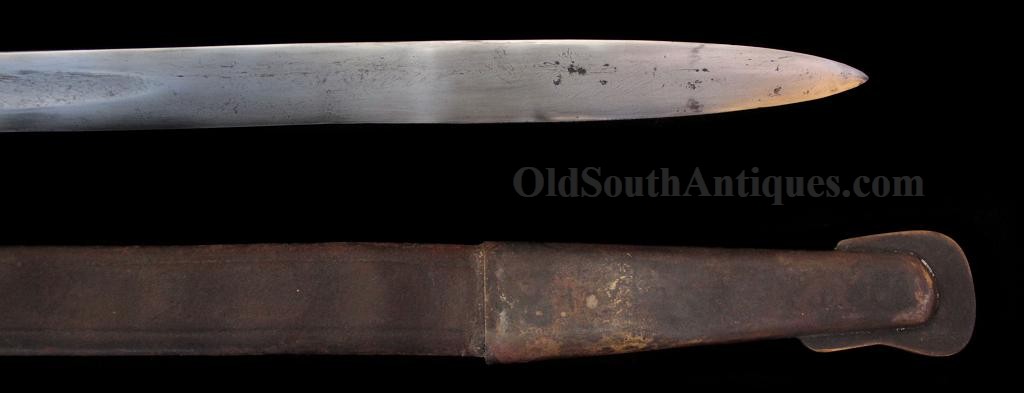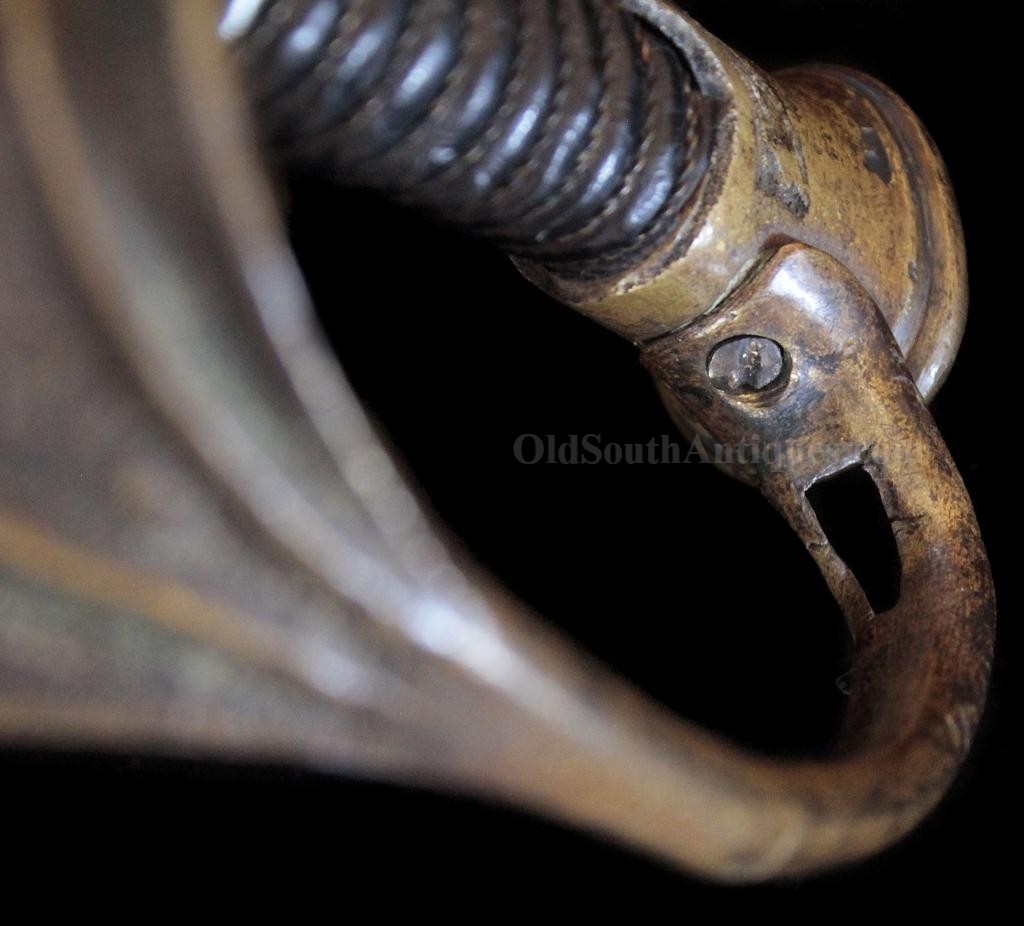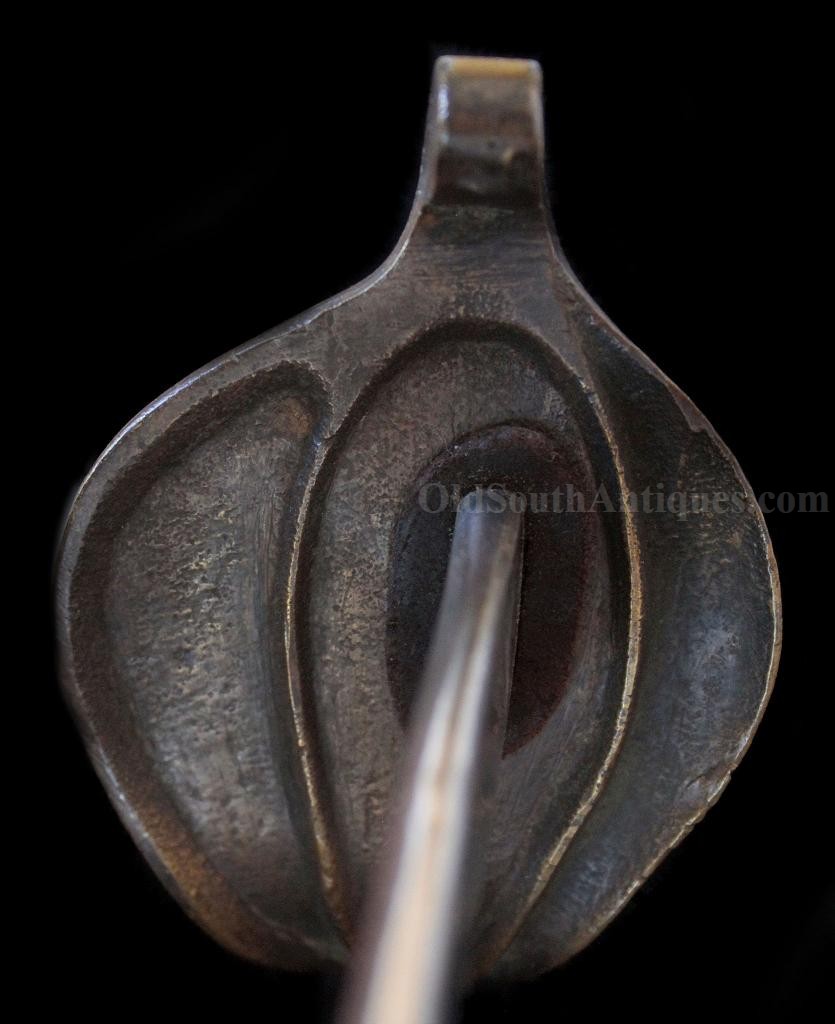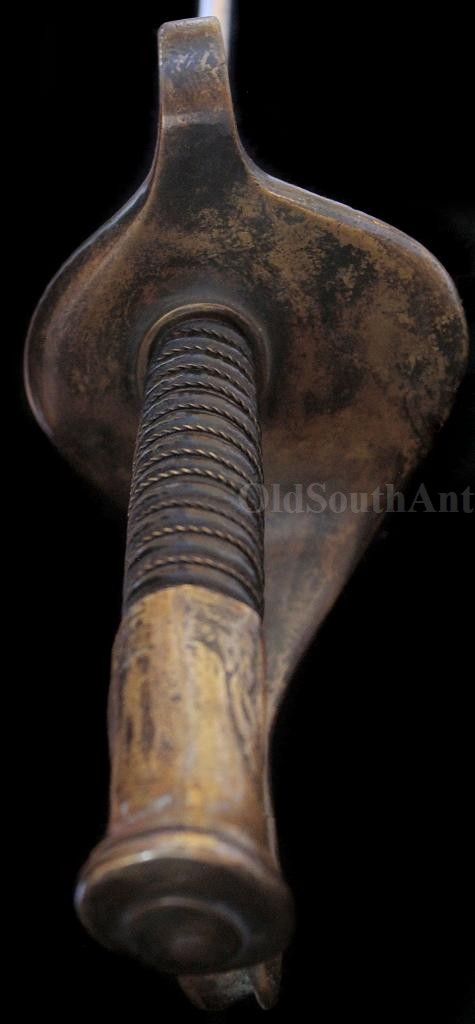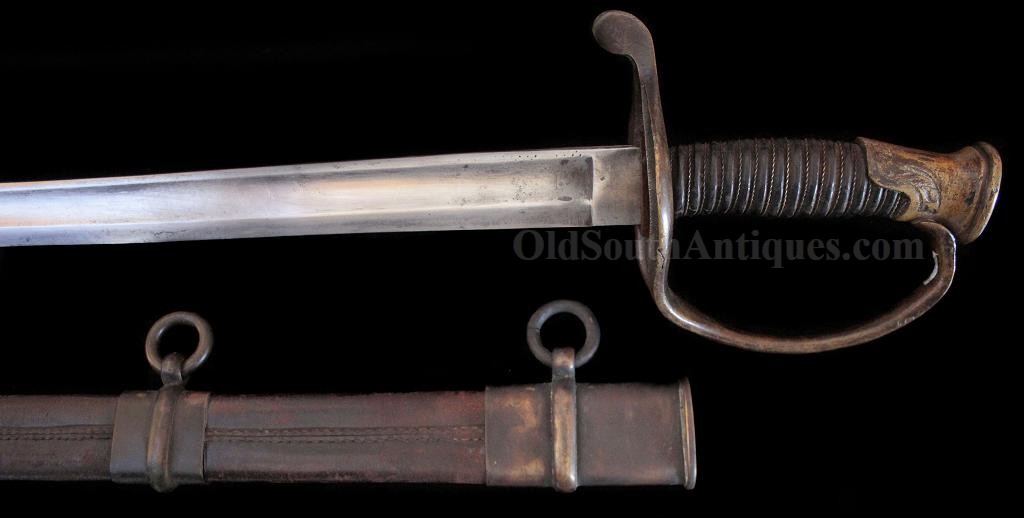
| Catalog | Past Items | Order Info | Terms/Conditions | About Us | Inventory Clearance |
The sword shown here is one of the rarest of known Confederate makers. I have wanted to examine one of these swords for nearly forty years, and only recently had my first opportunity. The maker of this rare sword is identified by one known example that is marked M.C. & CO over TILTON over G.A. on the reverse of the ricasso, and 1861 on the obverse. Fortunately, their construction is so unique, that all others can be identified by this one marked example. The particular things to look for in a Tilton sword are an unpierced basket, a stopped fuller, a broad quillon and the most definitive item of all, the screw that attaches the knuckle bow to the pommel. No other maker has this feature. Their backstitched leather scabbards are also easily recognizable. Mounted in brass, their mounting rings are of an unusually small circumference, and are made of an unusually large diameter round stock.
The Vicksburg Weekly Citizen (Vicksburg, Mississippi) of June 24, 1861, referring to a list of manufactories being set up in Confederate Georgia, states: "A musket and sword factory is being established at Tilton.” So, who were M.C.& CO, and what was at Tilton?
Tilton, Georgia was in Whitfield County, half way between Dalton and Resaca. It was established as a watering depot on the Western & Atlantic Railroad, and a small town grew up along its tracks. By 1860, Tilton boasted two gunsmiths and five blacksmiths, as well as two school teachers, two masons, a wheelwright, a couple of merchants, a carpenter and three ministers. In other words, a thriving little Southern town.
One of the gunsmiths was forty-six year old Joseph John Martin. In 1854, Joe Martin moved his family to Whitfield County, and then to the little town of Tilton in 1858. From their home in Tilton, the Martin family served meals and rented rooms to the workers and passengers on the railroad and operated a gunsmith shop. The other gunsmith in Tilton was thirty-four year old William Floyd Carroll. These two men were the principles in Martin, Carroll & Co.
When The War came, Georgia Governor Joe Brown attempted to get the country gunsmiths manufacturing military arms for the state by setting up a barrel manufactory in the state owned machine shop in Atlanta and distributing the barrels to the country gunsmiths to add stock and lock and complete the arms.
Among these country smiths were Martin, Carroll & Company. At least one .54 caliber rifle exists with the rare M, C & Co. maker mark and another with the lock marked W.H. Martin.[i] W. H. was Joe’s son William Henry, a trained gunsmith. A third M, C & Company rifle exists. It is marked with "1861” behind the hammer, and "TILTON” over "GA” forward of the hammer.[ii] Joe’s eldest son, Micajah David Martin was also a trained gunsmith.[iii] This indicates that Joe’s sons William Henry and Micajah David made up the "& Co.” part of Martin, Carroll & Co. It is known for certain that Martin, Carroll & Company manufactured guns, swords and pikes and it is most likely that they also produced knives, though as yet, no marked examples have surfaced.
In April of 1861, Martin’s son Micajah enlisted in the 2nd Georgia Battalion Infantry and was captured on the second day of Gettysburg. He spent the remainder of his war in prison camps and returned home after the War.
Answering Georgia Governor Joe Brown’s call for pikes in February, 1862, Joe Martin delivered at least twelve pikes.[iv] Eulalie Martin, Joe Martin’s granddaughter wrote: "The armory was in my grandfather’s blacksmith shop. He, with the assistance of a few other men, manufactured these weapons.”[v]
In the spring of 1862, Martin’s son Will
Henry enlisted in the 39th Georgina Infantry at Dalton,
Georgia. He was wounded at Vicksburg, captured
at Franklin, and paroled at Camp Chase at the end of the
War. He too made it home.
Although little record of William Floyd Carroll’s life can be found, he lived to the ripe old age of 97.
The sword shown here is a fine example of the Martin, Carroll & Company’s foot officer’s sword. It retains one hundred percent of its original leather grip wrap and wire. The guard remains tight and the bright blade is in excellent condition. It is sheathed in its original M, C & Company scabbard, which is in very good condition.
I had read of the Tilton sword in William Albaugh’s sword book, and had wanted to see one in person, yet I went for nearly forty years without having opportunity to see a single example. This should give an idea of its rarity. When I finally did, I had the privilege of examining six within two days, allowing me to determine what was, and what was not, correct for this rare Southern maker.
Copyright © 2025 OldSouthAntiques.com All Rights Reserved.
Privacy Policy | Terms of Use
Powered by Web-Cat Copyright © 1996-2025 GrayCat Systems
